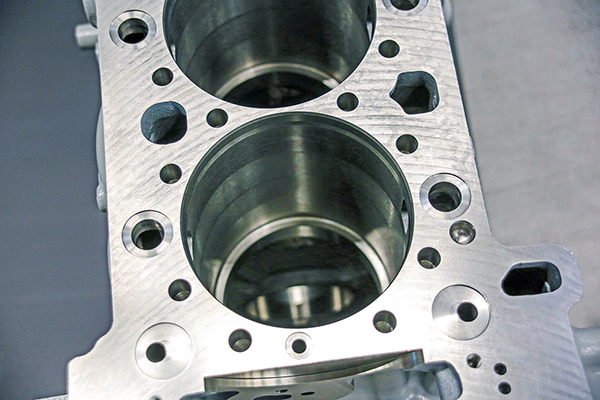Modern truck engines are produced at the Mercedes-Benz plant in Mannheim, where the requirements for ideal manufacturing include extremely tight tolerances for the decisive dimensions of engine blocks. Thanks to close co-operation between specialists from Mercedes-Benz, the machine manufacturer and Mapal, significant progress was made when a new production line for machining engine blocks was designed and implemented.

The engine blocks have a complex geometry and numerous key characteristics for which the highest tolerance classes must be reliably observed. Depending on the engine type, these include multiple H7 fits, various areas with accuracy specifications less than 15 µm, and chamfers with tight tolerances, including a 20° chamfer with an outlet for which an angle tolerance of just ± 0.025° must be observed.
A first line for machining these engine blocks was commissioned in 2011. When planning a second line, the persons responsible drew on their experience with the first line. The team identified the machining of the bores for the cylinder liner adapters as particularly challenging. Machining was divided into two stations: one for pre-machining and one for fine machining.
To this end, Mapal has developed complex actuating tools that are equipped with up to 20 indexable inserts, including ISO inserts and custom inserts. The actuating tools feature a tool body in monoblock design, and the HSK-160 connection shows an enlarged face surface with a diameter of 200 mm. One tool weighs a total of up to 60 kg.
Despite the connection and a tool length of 380 mm, it must be ensured that the tool has a radial run-out accuracy of 3 µm. The slides are actuated by a drawbar via an additional NC axis in the machine controller that had to be integrated in the HSK connection and suitable for the automatic tool change. This challenge was solved with a high-precision bayonet coupling that is used to couple the drawbar automatically during a tool change.
For further information www.mapal.com















